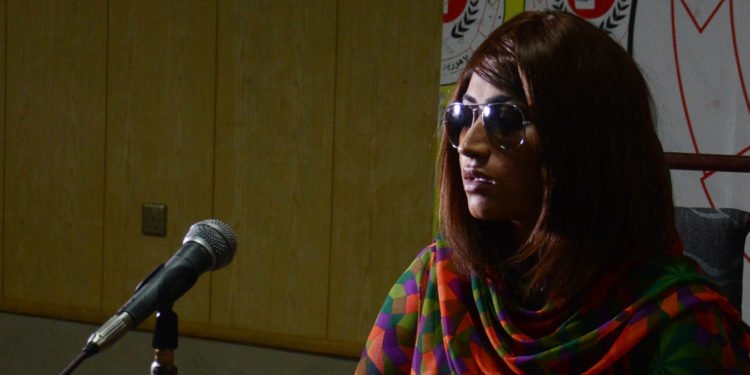[ad_1]
With such a public topic, what might there be left to inform? Maher, a journalist based mostly in Karachi, solutions that query handily, and initially. “A Girl Like Her” is a mannequin of methods to report on celeb: by specializing in the seedy characters who feed and exploit it, and by harvesting the main points, particularly on the seam between private and non-private, that extra typical journalists depart behind. Maher has an typically thrillingly slant gaze, a watch alert to the absurdities, ironies and small tragedies at play within the manufacture of pictures and personas. Her e book is filled with unforgettable scenes and vignettes — Baloch, pretending to be a clueless urbanite, her stilettos sinking into the mud on a actuality present set in a village just like the one the place she was raised; a tv speak present blurring her cleavage-spot to capitalize on her risqué picture, though she is carrying nothing revealing. This rigidity over who’s accountable for Baloch’s life drives the e book.
Amongst Maher’s clever decisions is to simply accept that the very publicness of Baloch’s life makes her, on some degree, unknowable. She was a building, all the way down to her identify, which was invented. (Certainly the disclosure of her actual identify by native media could have performed a job in her dying, by exposing her household to native ridicule and judgment.) Maher sprinkles the e book with Baloch’s personal phrases, spoken and written, however she doesn’t attempt to resolve their contradictions. Baloch was courageous and silly, phenomenally impartial and pathetically needy, protecting of her advantage and, as was her proper, additionally prepared to commerce on it. She was a sort (see: a Kardashian, to whom she was typically in contrast) but in addition solely herself. She was proof, if we would have liked it, life could be lived concurrently on the rise and on the run.
Maher diligently traces Baloch’s steps from her household dwelling to an abusive marriage to the ladies’s shelter the place she resolves to go away her husband but in addition, completely, her son, behind. From there Baloch moved by way of a sequence of disillusioning approach stations, the restricted menu for a girl on the make: bus hostess, mannequin. In all places in these subcultures Maher finds ladies confined and commodified, desperately attempting, and infrequently succeeding, to manipulate their very own lives. No marvel the web appeared to supply Baloch a brand new type of freedom, one well worth the worth of the abuse she acquired. Social media is “not somebody’s father’s property,” she tells her critics. “Everybody has the fitting to precise their opinion on it.” And but it is a darkish e book, by which loyalty and kindness are outdone by exploitation and cruelty. Maher, for instance, finds the younger reporter who breathlessly raced to Baloch’s household dwelling after receiving a police tip about her homicide. Dissatisfied together with his scoop, he organized to have the sheet protecting her corpse eliminated in order that he might it, so he might see for himself. That is amorality with out a flooring.
[ad_2]









